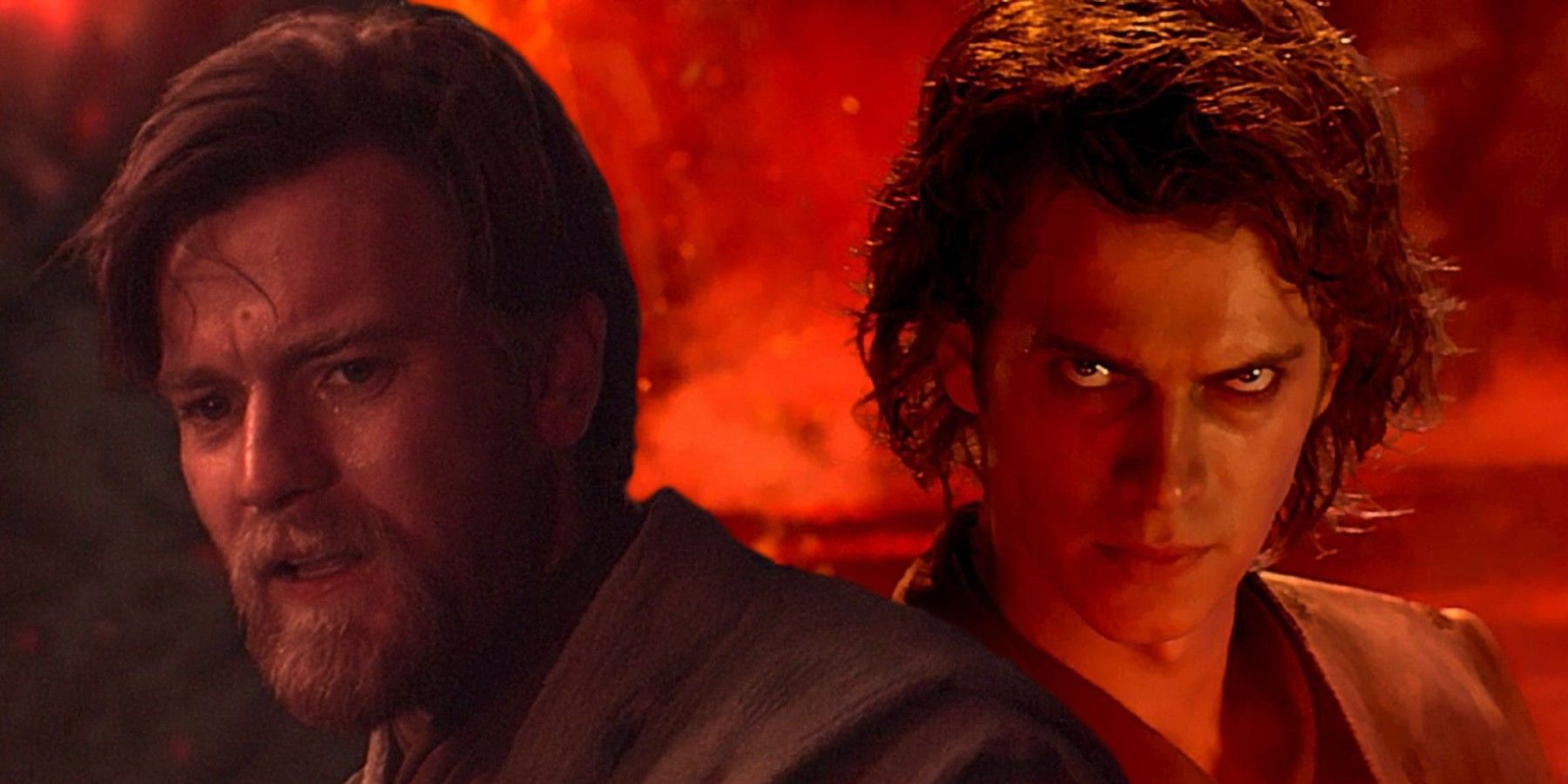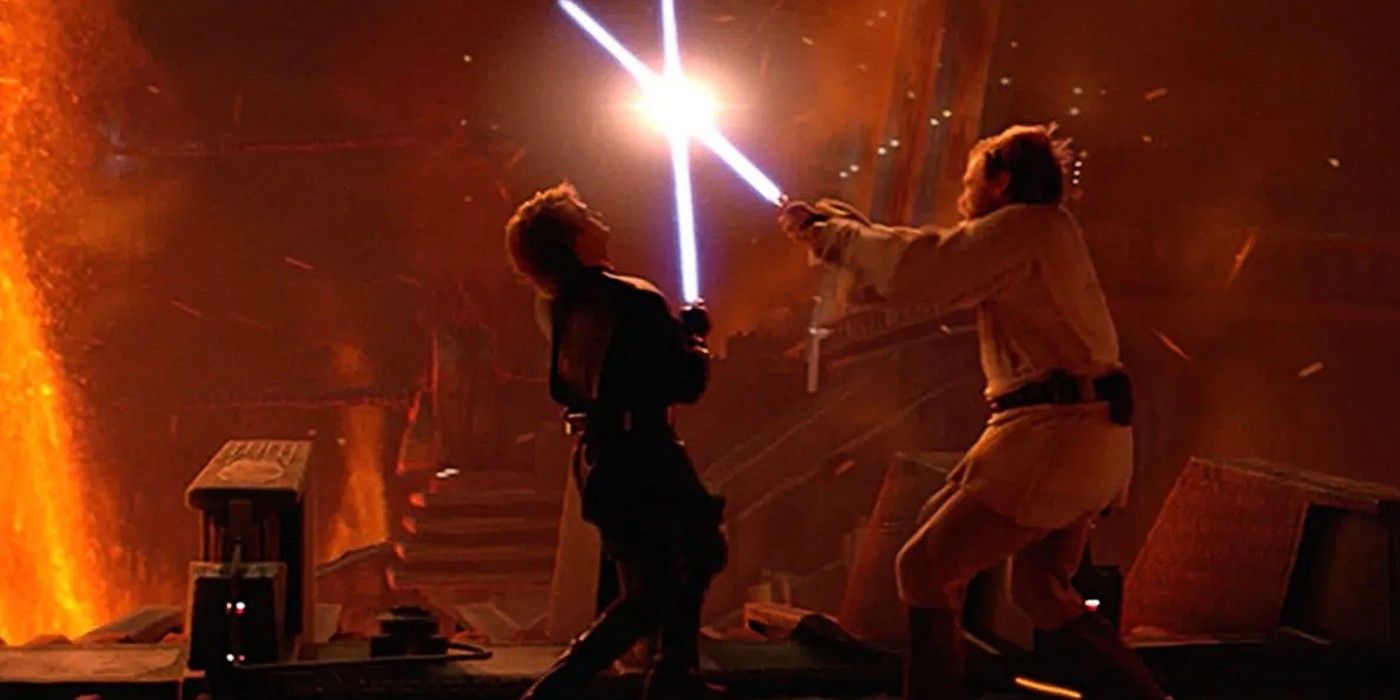The climactic duel at the end of Star Wars: Episode III - Revenge of the Sith may have seen Obi-Wan Kenobi drawing on the power of the dark side of the Force to defeat Anakin Skywalker/Darth Vader. The tragedy of Anakin Skywalker’s fall to the dark side in Revenge of the Sith has grown more powerful and iconic in the years since the movie was released. Much of the credit for this could be attributed to Star Wars: The Clone Wars, which intricately fleshed out the true extent of the affection and friendship of Obi-Wan Kenobi and Anakin Skywalker.
The misery and sadness that followed the breaking of these bonds of friendship were explored further by the Disney+ series Obi-Wan Kenobi. The follow-up series revealed that Obi-Wan had chosen to cut himself off from the force, in a similar way to Luke Skywalker in Star Wars: The Last Jedi. This choice appeared to have largely derived from the pain and guilt of failing his best friend. However, Obi-Wan was freed from the worst of these destructive feelings by discovering that Vader had survived their duel and then by facing and defeating him again.
Obi-Wan Kenobi defeating an Anakin Skywalker (who's on the verge of becoming Darth Vader) in Revenge of the Sith was remarkable in many ways. Despite being a Jedi Knight at the height of his powers, he was disadvantaged due to where the duel took place. According to Star Wars canon, the planet Mustafar was home to a powerful vergence or nexus of the dark side. This meant that Obi-Wan's ability to draw upon the Force should have been reduced, effectively placing him at a huge disadvantage. As a result, and due to the nature of the confrontation, Obi-Wan may have drawn upon the dark side to defeat Vader. After all, despite stating, “I will do my duty,” it was not just duty that guided Obi-Wan during the duel. He was angry, passionate, and driven by emotion, as Matt Stover's novelization of Revenge of the Sith explained when it stated that Obi-Wan “had argued for Anakin, made excuses, covered for him again and again. All the while, this attachment he denied even feeling, blinded him to the dark path his best friend walked.” In short, this deeply held emotional connection showed Obi-Wan shared the same weakness as Anakin, making it clear that dark side traits—like passion and anger—were always likely to overcome duty during their confrontation.
Obi-Wan Using The Dark Side Would Make His Exile Even More Meaningful
If Obi-Wan had drawn on the dark side during the duel in Revenge of the Sith, he would certainly have known it. After all, he had given his life to the Jedi Order and lived according to their teachings. If Obi-Wan had failed to use those teachings when faced with his greatest challenge there would have been a need for questions and introspection. However, if it was his emotional attachment to his friend and, by extension, the dark side of the Force, that allowed him to defeat the powerful Sith Lord Darth Vader, then it would have given even greater meaning to the nature of his exile.
In this way, the Obi-Wan seen in the Obi-Wan Kenobi series would have made even more sense. There was no doubt that his grief and pain were real, but this was not simply a matter of him doing his duty by watching over Luke Skywalker. Withdrawing from the Force and distancing himself from the compassion and selflessness that were hallmarks of the Jedi Order, suggested that Obi-Wan Kenobi was a man who had lost faith in the Jedi and his own judgment.
The fall of Anakin Skywalker and the rise of Darth Vader were another undeniable tragedy in the life of Obi-Wan Kenobi. Losing his best friend and the only family he had ever known, while believing his failings were to blame, was a terrible burden to carry. Nevertheless, the possibility that Obi-Wan Kenobi used the dark side of the force to defeat his friend Anakin Skywalker in Star Wars: Episode III – Revenge of the Sith certainly added another compelling layer of meaning to the nature of his exile.


